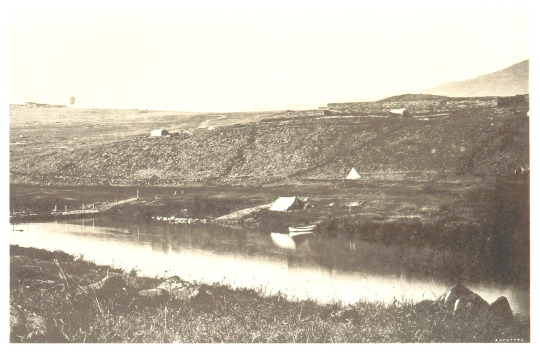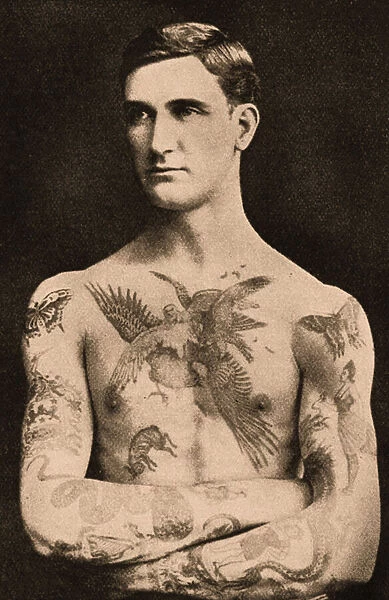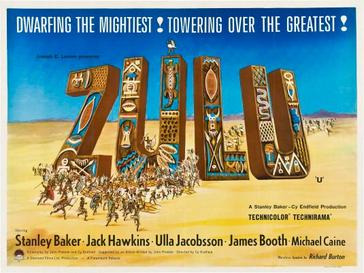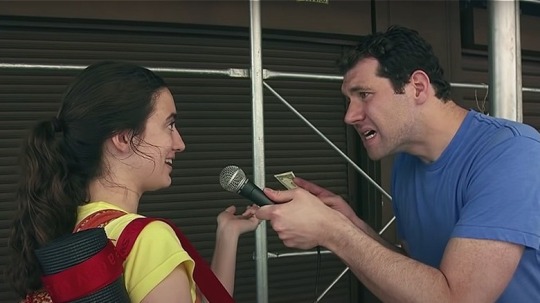#anglo zulu war
Explore tagged Tumblr posts
Text

Michael Caine in action in Zulu (1964). Zulu Dawn is a better film and the good guys (Zulu) win in that one.
18 notes
·
View notes
Text

The Defense of Rorke's Drift, 1879, Alphonse de Neuville, 1880
#art#art history#Alphonse de Neuville#historical painting#military history#Zulu War#Anglo-Zulu War#Rorke's Drift#battle scene#French art#Academicism#Academic art#19th century art#oil on canvas#Art Gallery of New South Wales
49 notes
·
View notes
Note
oh my god, you’ve seen Zulu (1964)?! my dad made me watch it with him because I wouldn’t shut up about Waterloo (1970) and I suppose he was right to because it’s fully affirmed my love of war and war movies… I don’t understand why they’re building a bridge across a stream that can be crossed on foot, though? am I missing something?
Yes!!! 🤣 I've watched both of those so many times. 😂 I mean keeping in mind I haven't watched it in a long time, I think it's just because it would be more practical to have an actual bridge for troops to cross rather than slowly wading across through that shallow bit.
Some bonus stuff 🤣 I actually don't know when this photo is from, but it's of the Buffalo River (KwaZulu-Natal) near Rorke's Drift, so it at least gives an idea of what they were representing. I believe Chard was also just repairing the pontoon bridge(s) instead of building them, but that's a detail that isn't at all important to the movie. 🤣

#If all of this is totally wrong do not @ me kdsjhsdkh#I studied the Anglo-Zulu war of 1879 for awhile but that was several years ago now#asks#I'm so glad you sent this ask 😂
3 notes
·
View notes
Text
Wrapping up today with King Cetshwayo:
Cetshwayo, the last independent ruler of Zululand, was the ruler who led the fight against the British and who, after defeat, sough to keep up the fight to keep Zulu land Zulu and to resist the land grabs by both Boer and Briton. That he was one of many rulers who failed does not distinguish him from others, that he and his people outright won multiple major victories before their defeat instead of fighting a heroic but ultimately futile set of last stands to defy the courses of time, OTOH, very much does.
His career and his defeat marks an appropriate swansong prior to the Partition of Africa and in many ways the close of the era when European power in Africa was limited to enclaves either right on its coastlines or in the case of South Africa, the one significant zone of conquest that reached into the interior to any great degree.
#lightdancer comments on history#black history month#military history#history of south africa#anglo-zulu war#cetshwayo
0 notes
Text
Opinions on Kanduu (Episode 10 SPOILERS)
I love that Kanduu is not entirely a villain, more like an anti-hero, he's just someone who believes what he is doing is the right thing. He was also not a villain to begin with, rather he was just a soldier, or rather a Lieutenant, who was responsible for the well-being of other soldiers under his command. He was just someone who ended up desperate to prevent even more deaths and to survive, and people can make bad decisions when they're desperate.
While it is wrong to try to sacrifice 1000 people, I also do see where he's coming from and that he is right in wanting to stop wars. He's just going the wrong way about it.
I believe the war he was in was the Anglo-Zulu war, and in real life, the British wanted the Zululand in South Africa for a few reasons, but one was so they could get the Zulu people to perform labour digging/mining for diamonds. Kanduu says "We were fighting in a country we did not belong in, for something that was not ours to begin with", and this is what I believe he's referring to.
As for the next season, which I do believe is coming, it would be stupid to not have a second season when season 1 ended on a cliffhanger, I think Kanduu is going to be far more dangerous. He wanted to see if he could make the kids understand what he was doing, to try to see where he was coming from, but now that he knows they're against him he's not going to take "no" for an answer a second time. He's not going to play fair or be nice.
65 notes
·
View notes
Text

Portrait of a man tattooed by Sutherland MacDonald, 1897
Sutherland Macdonald (1860 - 1942) was a prominent English tattoo artist in the late 19th century and early 20th century, and the first tattooist in Britain with an identifiable premises open to the public. Macdonald served in the British Army in the 1870s as a telegraph operator in the Royal Engineers and was in the Anglo-Zulu War. He trained George Burchett. He died at his home on 3 Guilford Avenue, Surbiton and is buried at Surbiton Cemetery.
22 notes
·
View notes
Text
You know what, it's April fool's day so I'm letting go of all my worries about how this insane rambling will look like cause IT'S TIME TO TALK ABOUT THE ZULU KINGDOM BABY
What is the Zulu kingdom? It is a African kingdom located in Austral Africa, founded in 1816 by the first king Shaka Zulu (also called Shaka kaSenzangakhona).
This kingdom stayed independent until 1879, when the Anglo Zulu war saw the British empire take control of the state, but before this, the Zulu kingdom had an enormous impact on Southern Africa as a whole, both in terms of geography, culture and warfare.
To explain this, let's go back to the foundation of the kingdom. At the time, the Zulus were not a kingdom, but a tribe. Shaka Zulu, who was one of the numerous children of the tribe leader Senzangakhona, took power after his death and set out to do numerous reforms to the way of life of the Zulus, which would turn crucial to the tribe's transition into one of the most fearsome military states of its time.
The first reforms were in weaponry: while the Zulus, like other tribes of the region, used mainly spears to fight, Shaka introduced new ways of fighting with the iklwa (an assegai which would play a role similar to a sword) and the isihlangu (a 2 meter tall cow hide shield perfect to shield Zulu soldiers from enemy spears). With those, the strategy would be to rush towards the enemy lines, who still used spears, and go into hand to hand combat where the iklwa were superior.
Shaka Zulu also introduced new military tactics, which were never seen before in Southern Africa -owning him the nickname of "the African Napoleon"-, though the one he is the most well known for is the bullhorn strategy. This tactic would separate the army in three contingents: the horns, formed of the younger soldiers whose role would be to deploy quickly and circle the enemies as to stop them from running; the chest, the main force which would then hit the enemy (in a hammer and anvil formation similar to those of Alexander the Great); and the loin, a special force staying behind and ready to intervene wherever they would be needed, wether it was finishing off fleeing enemies, helping a struggling group or assisting in the retreat.
All of this lead the Zulus to easily beat and take control of the neighboring tribes and states, in an event knows as the Mfecane (crushing in Zulu), where people would flee the Zulu menace and bring in their escape the Zulu strategies, which in turn would make them a danger to the people they were fleeing into. But not everyone fled, and a lot of tribes became integrates into Zulu society.
This is where we can see Shaka Zulu's reforms of the military to their full extent: the first thing he did with it was to organize the military into ranks based on veterance. As said before, the youngest soldiers would form the horns, and the oldest the chest. Another thing was that every group of soldier (the impi) was to be formed of men from different tribes. This way, a feeling of unity would form that would stop the conquered groups from wanting to revolt.
By doing this, Shaka Zulu created a sentiment of Zulu identity even in groups originally not Zulu, which would stay up to this day.
And that is how the Zulu kingdom came to be! Through the numerous reforms and military genius of Shaka Zulu, was born a brand new actor in Southern Africa, one that would one day inflicts to the British their worst defeat in a war of colonization- but that's for another time!
5 notes
·
View notes
Text
Imagine this as the teaser trailer for a stand-alone sequel to “Prey”:
It’s the middle of the Anglo-Zulu War. A group of Zulu warriors (the leader/main character is played by Djimon Hounsou) approaches a set of British barracks that they planned on attacking. Once inside, they discover that the entire barracks has been ransacked, with all the soldiers inside already dead. One Zulu warrior asks if this was the work of another Zulu unit, but Djimon says, “No…someone else did this”. He says this because he finds scorch marks on the walls that clearly didn’t come from either British or Zulu weaponry.
Just then, they find one survivor among the British. The British soldier is heavily injured and coughing up blood. Just as the Zulu soldiers are about to approach and demand answers, the British soldier shouts, “They’re still here, they’re baiting you! Get out now!”
Suddenly, the Zulu soldiers are covered with Predator laser sights. To make matters worse, the way the lasers are scattered around the room indicates that there are multiple Predators outside. One Zulu soldier panics and shouts, “What is this!?” Djimon, who is also panicking but trying to remain calm, whispers, “I don’t know.”
Djimon then looks outside the window and sees at least three Predators staring right back at him. Sudden cut to black…reveal the title screen of “PREY 2”.
#djimon hounsou#predator#prey#prey movie#prey 2022#yautja#predators#predator movie#predator fandom#predator franchise#predator prey#period piece#yautja stuff#yautja imagine#movies#predator 1987#predator 2#the predator
22 notes
·
View notes
Text
25 of 250: Favorite Films - Zulu
Not long ago, work colleagues and I got into a discussion about what our favorite films were. Given my categorical nature I could not resist writing down a list and, as a writing challenge, have decided to write 250 word reviews of my favorite 25 films of all-time. Note: these are my favorite films, not what I think are the best films of all time.

Directed by: Cy Enfield
Written by: John Prebble and Cy Enfield
Starring: Stanley Baker, Michael Caine, Jack Hawkins, James Booth
Year/Country: 1964, United Kingdom
Is the British classic Zulu racist or anti-imperialist? The film has vociferous defenders and critics, each having good ammunition for their arguments. The subject of the film is the Battle of Rorke’s Drift during the Anglo-Zulu War in which 100 British soldiers managed to survive determined attacks by 4,000 Zulu warriors. It still holds the title for the most Victoria Crosses awarded in a single battle.
For those who claim the film is racist, it’s impossible to ignore that the Anglo-Zulu was fought for racist and nakedly imperialist reasons, the battle features African warriors armed with spears against Europeans wielding breech-loading rifles, and the film starts with the exploitive scene of a Zulu wedding ceremony. These are all valid critiques and impossible to ignore. And we shouldn’t. The Anglo-Zulu War led to a century of apartheid in South Africa, just as other colonial adventures did.
However, the arguments claiming the film is anti-imperialist are just as valid. The soldiers are all professionals who view the Zulus as dangerous and worthy opponents; they are unmotivated by patriotism. When one private asks a grizzled veteran “why us?”, the sargeant deadpans “because we’re here, lad.” The nihilism of the troops undercuts any rah-rah moments, resulting in a much more human story than might’ve otherwise been told. At the end of the battle, one officer asks, “So, you’ve fought your first battle. How do you feel?” The answer: “Sick.” Such moments go a long way to minimizing the film’s more troubling attributes.
6 notes
·
View notes
Text
Hate British military literature. I'm reading about the Anglo-Zulu war and for some reason I'm reading half a chapter about some guy named Lieutenant Glynn and his career in Gibraltar??
7 notes
·
View notes
Text

On the set of Zulu Dawn filmed in January 1979 on the actual site, 100 years to the month, of the real battle of Isandlwana.
Unlike the jingoistic crap fest of Zulu (1964, a favorite movie of mine because of Michael Caine and not any message in the movie), Zulu Dawn managed to take a slightly more post imperial look at the British Empire and hint that maybe, just maybe, they were the baddies. There's still a lot of chest pounding and that sort of thing, but if you want to see a movie where the people in red all die except for like a few of them, this is one for you.
#zulu dawn#movies#behind the scenes#anglo zulu war#peter o'toole#burt lancaster#bob hoskins#denholm elliott#simon ward#fuck imperialism#fuck the british empire
9 notes
·
View notes
Text
Obviously, the battle of Isandlwana in the Anglo-Zulu war, which concluded with the crushing victory of the Zulu army against the British regiment.
Any battle at all except Waterloo. Reblog if you can think of one!

8K notes
·
View notes
Text
Hlobane was the other great Zulu victory:
While Isandlwana gets a great deal of fame, Hlobane was a victory in its own way no less momentous and confirming one of the key elements that made this war distinctive. While the war would change at Khambula when newer-style artillery finally made its full debut on the battlefield along with machine guns, the earlier battles were rifles vs. spears and, save at the static fighting at Rorke's Drift that was more than a little akin to Blood River the Zulus rolled over the British. This underscores a key lesson of real wars, that machines alone can decide things in certain contexts but in others they create very real weaknesses that a seemingly obsolete force can and will exploit and make itself certain to do so.
It should also be noted in European terms of the time that artillery was the real killer in war, so the Zulu falling to that and to machine guns was a case of patterns that happened to European armies as well, and when a European army falls to this at Sadowa or Sedan they are considered incompetently led but it's not taken as an entire verdict on a people or a culture.
#lightdancer comments on history#black history month#afican history#military history#anglo-zulu war#battle of hlobane
0 notes
Text
Events 1.23 (before 1920)
393 – Roman emperor Theodosius I proclaims his eight-year-old son Honorius co-emperor. 971 – Using crossbows, Song dynasty troops soundly defeat a war elephant corps of the Southern Han at Shao. 1229 – The episcopal seat is moved from Nousiainen to Koroinen (located near the current centre of Turku) by the permission of Pope Gregory IX. The date is starting to be considered as the founding of Turku. 1264 – In the conflict between King Henry III of England and his rebellious barons led by Simon de Montfort, King Louis IX of France issues the Mise of Amiens, a one-sided decision in favour of Henry that later leads to the Second Barons' War. 1368 – Zhu Yuanzhang proclaims himself the Hongwu Emperor, beginning the Ming dynasty. 1546 – Having published nothing for eleven years, François Rabelais publishes the Tiers Livre, his sequel to Gargantua and Pantagruel. 1556 – The deadliest earthquake in history, the Shaanxi earthquake, hits Shaanxi province, China. The death toll may have been as high as 830,000. 1565 – The Deccan Sultanates defeat Rama Raya of the Vijayanagara Empire at the Battle of Talikota, resulting in over 100,000 casualties and the destruction of the capital Vijayanagara. 1570 – James Stewart, 1st Earl of Moray, regent for the infant King James VI of Scotland, is assassinated by firearm, the first recorded instance of such. 1571 – The Royal Exchange opens in London. 1579 – The Union of Utrecht forms a Protestant republic in the Netherlands. 1656 – Blaise Pascal publishes the first of his Lettres provinciales. 1719 – The Principality of Liechtenstein is created within the Holy Roman Empire. 1789 – Georgetown College, the first Catholic university in the United States, is founded in Georgetown, Maryland (now a part of Washington, D.C.) when Bishop John Carroll, Rev. Robert Molyneux, and Rev. John Ashton purchase land for the proposed academy for the education of youth. 1793 – Second Partition of Poland. 1795 – After an extraordinary charge across the frozen Zuiderzee, the French cavalry captured 14 Dutch ships and 850 guns, in a rare occurrence of a battle between ships and cavalry. 1846 – Slavery in Tunisia is abolished. 1849 – Elizabeth Blackwell is awarded her M.D. by the Geneva Medical College of Geneva, New York, becoming the United States' first female doctor. 1870 – In Montana, U.S. cavalrymen kill 173 Native Americans, mostly women and children, in what becomes known as the Marias Massacre. 1879 – Anglo-Zulu War: The Battle of Rorke's Drift ends. 1899 – The Malolos Constitution is inaugurated, establishing the First Philippine Republic. Emilio Aguinaldo is sworn in as its first president. 1900 – Second Boer War: The Battle of Spion Kop between the forces of the South African Republic and the Orange Free State and British forces ends in a British defeat. 1904 – Ålesund Fire: The Norwegian coastal town Ålesund is devastated by fire, leaving 10,000 people homeless and one person dead. Kaiser Wilhelm II funds the rebuilding of the town in Jugendstil style. 1909 – RMS Republic, a passenger ship of the White Star Line, becomes the first ship to use the CQD distress signal after colliding with another ship, the SS Florida, off the Massachusetts coastline, an event that kills six people. The Republic sinks the next day. 1912 – The International Opium Convention is signed at The Hague. 1919 – The First Regional Congress of Peasants, Workers and Insurgents is held by the Makhnovshchina at Velykomykhailivka.
0 notes
Text
Info on Kanduu's character
Name: Rupert (surname unknown)
Nationality: British (English)
Age: canonically unknown, but likely in his late 30s to early 40s (if we're saying his age is the same as the actor's then he's 42)
Height: 6 ft
Eye colour: blue
Hair colour: light brown
Army Rank: Lieutenant
War he was involved in: Anglo-Zulu war
#goosebumps#goosebumps 2023#slappy the dummy#goosebumps disney plus#goosebumps slappy#kanduu#slappy#chris geere#goosebumps series
9 notes
·
View notes
Text

The Anglo-Zulu War was a conflict between the British Empire and the Zulu Kingdom (January 11 - July 4, 1879 in South Africa. They wanted the Zulu population to provide labor in the diamond fields of South Africa. They wanted to settle Boer land claims in the region that included territory held by the Zulus.
The Zulu Kingdom King Cetshwayo refused to submit to British control and instead organized an army of nearly 60,000 men. In December 1878, the British High Commissioner of South Africa issued an ultimatum to Cetshwayo demanding that the Zulus dismantle their military system within 30 days and pay reparations for alleged insults.
The British troops marched on Zululand. On January 12, 1879, an early skirmish took place at Sihayo’s Kraal with British forces led by Lord Chelmsford and the Zulus led by Mkumbikazulu kaSihayo, who was killed in the battle, resulting in a British victory.
The British and Zulu met at what would be known as the Battle of Isandlwana. The British Army, comprising 1,800 troops, while the Zulu Army, some 20,000 strong, was led by Ntshingwayo Khoza. They faced a humiliating defeat at the hands of the Zulus.
Cetshwayo’s brother, Dabulamanzi kaMpande, led the Zulu troops at Rorke’s Drift, Natal Province, against British forces. The Battle of Rorke’s Drift, saw 140 British Army regulars defeat 4,000 Zulu warriors.
The Battle of Intombe occurred on March 12, 1879. Zulu Prince Mbilini waMswati and British commander David Moriarty led their respective forces in the battle. Moriarty was killed leading to a Zulu victory.
The Battle of Hlobane, the Battle of Kambula, the Battle of Gingindlovu, the Siege of Eshowe, the Zungeni Mountain skirmish, and the Battle of Ulundi, the last major battle of the Anglo-Zulu War, taking place on July 4, 1879. That battle resulted in a British victory where Chelmsford defeated Cetshwayo and his army, signaling the end of the Anglo-Zulu War. Zululand was incorporated into the British Empire.
In 1979, the film “Zulu Dawn” was released. #africanhistory365 #africanexcellence
0 notes